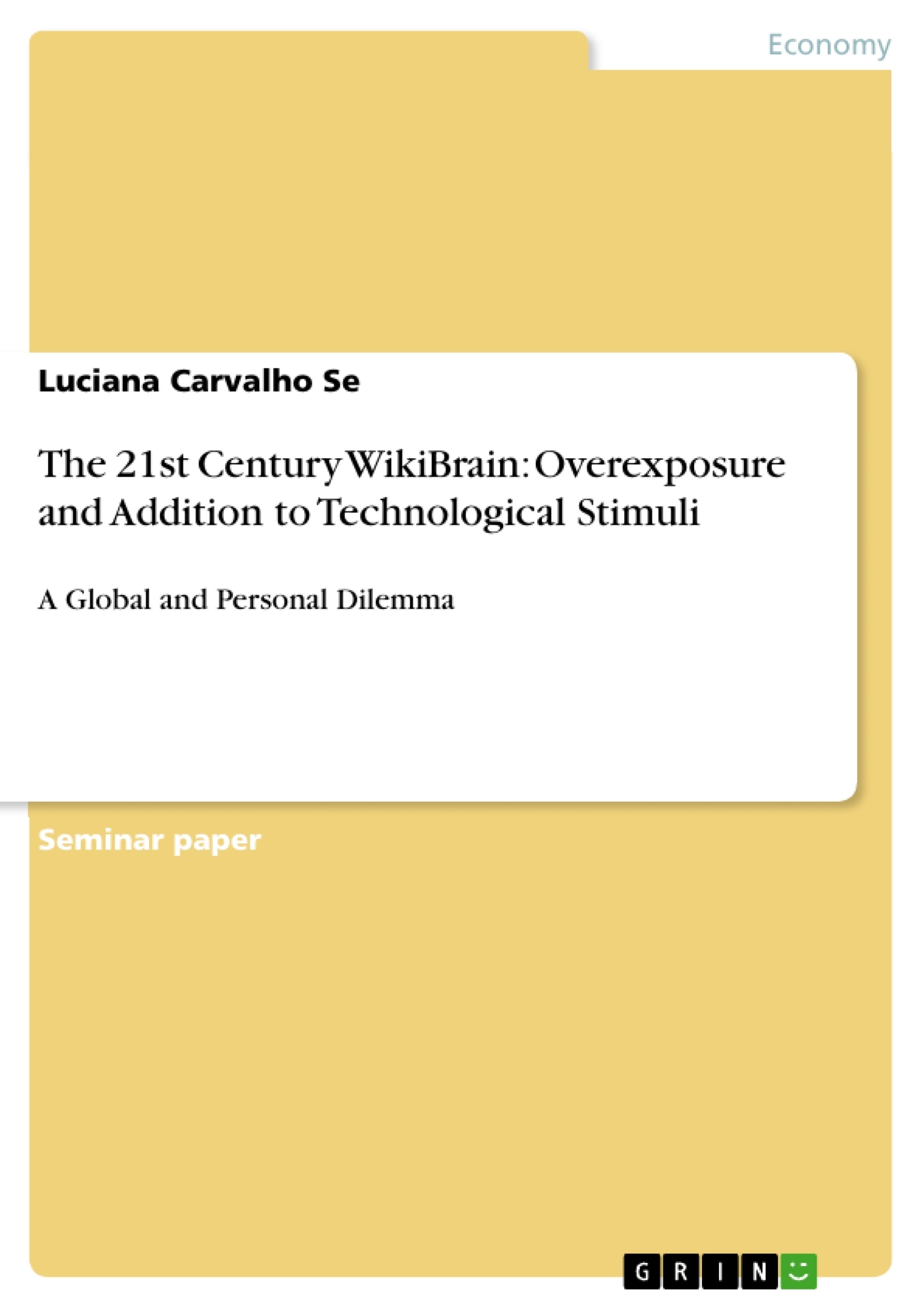How many people currently think they suffer from attention-deficit disorder? Technological advancement has changed the world on an unprecedented scale. It has been accompanied by incredible economic development and growth. Never before have we had this much access to this much information. We have boarded an ever-moving train, which allows us to explore and develop ways of enhancing our lives on a scale and at a speed never before imagined. We have drastically changed the way we experience the world. Society focuses on the positive effects Internet-advancement has brought us. Yet what about the unintended, knock-on consequences?
Inhaltsverzeichnis (Table of Contents)
- I) INTRODUCTION
- The iBrain generation: Growing up wired, distracted and overknowledge'd
- II) THE INTERNET: DIGITAL PLAYERS
- III) DELVING DEEPER: A congruence analysis
- I. Information processing in an 'instant gratification' society (the only child syndrome)
- II. How much is too much? Multi-tasking vs multi-distracting? Boundarylessness, perfectionism and attention management
- IV) DRAWING CONCLUSIONS
- Seeing leverage points for a mental model switch
Zielsetzung und Themenschwerpunkte (Objectives and Key Themes)
This paper examines the impact of overexposure to technological stimuli, particularly the internet, on the ability to focus and manage attention in an increasingly “wiki” society. It aims to analyze the challenges posed by instant gratification and information overload, and explore potential solutions to address these challenges.
- The influence of digital technologies on attention span and information processing.
- The concept of the “WikiBrain” and its implications for learning and cognitive development.
- The challenges of multitasking, boundarylessness, and perfectionism in a digital world.
- The need for mental model shifts and strategies for managing attention in an increasingly digital environment.
- The potential benefits and drawbacks of technology and the need for a balanced approach.
Zusammenfassung der Kapitel (Chapter Summaries)
The introductory chapter explores the author’s personal experience with information overload and attention deficit, framing the issue within the context of the “iBrain” generation. The author connects their struggles with recent research on the cognitive impact of technology, particularly the effect of Google and other information databases on our brains.
The second chapter delves into the nature of the digital revolution and its influence on society, exploring the forces driving the digitalization movement. The chapter examines the concept of the “WikiBrain” and its potential for both positive and negative consequences.
The third chapter analyzes the specific challenges posed by an “instant gratification” society, examining the impact on information processing and attention management. The author discusses the concepts of multitasking, boundarylessness, and perfectionism in relation to the digital age.
Schlüsselwörter (Keywords)
This paper focuses on the key concepts of “WikiBrain”, “iBrain”, information overload, attention management, digital technology, instant gratification, multitasking, boundarylessness, perfectionism, and cognitive impact.
- Citar trabajo
- Luciana Carvalho Se (Autor), 2011, The 21st Century WikiBrain: Overexposure and Addition to Technological Stimuli, Múnich, GRIN Verlag, https://www.grin.com/document/177537




